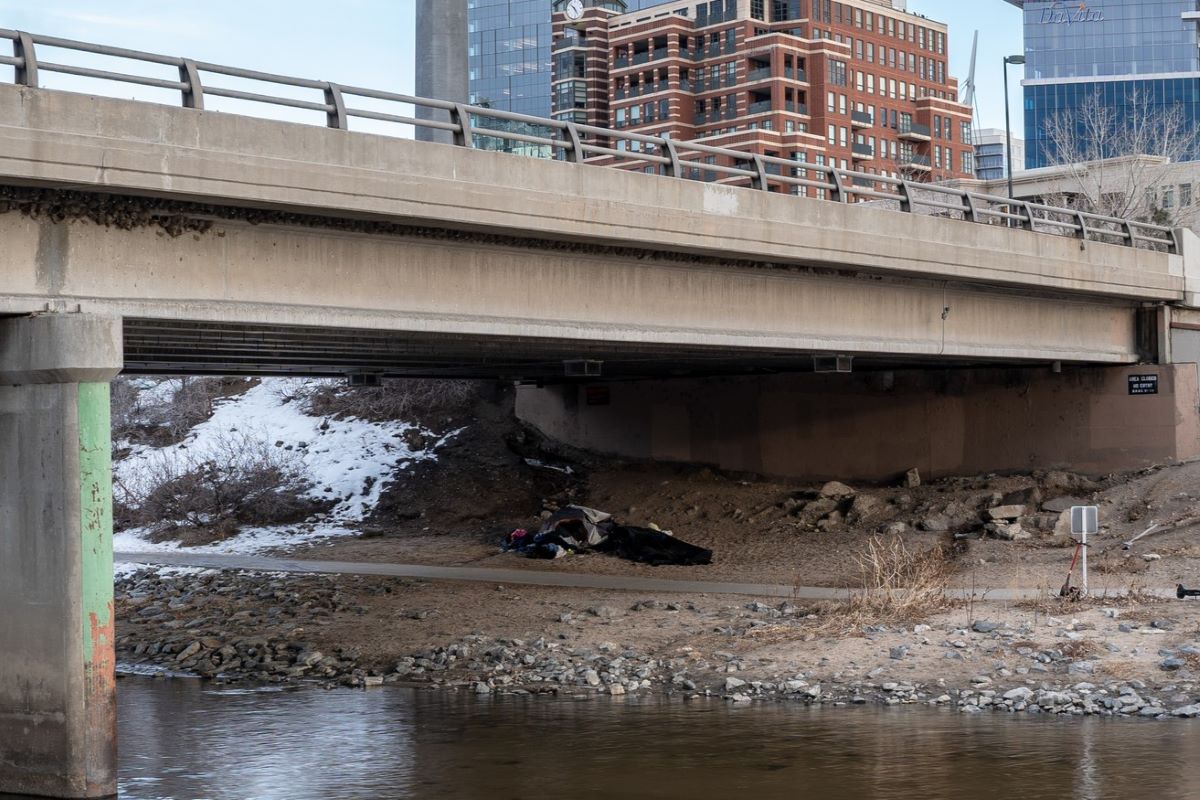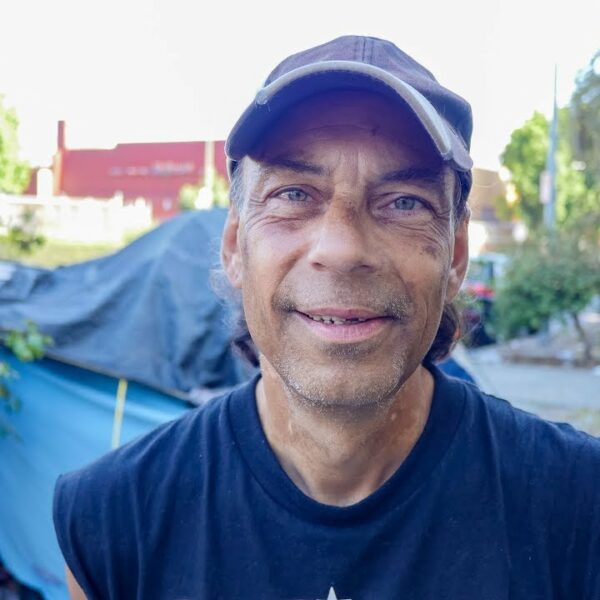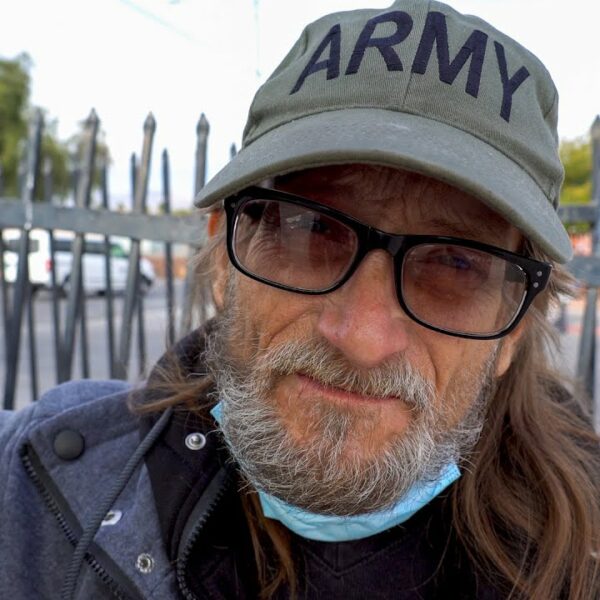Advocates Don’t Have Needed Votes to Override Mayor’s Expected Veto of the Bill
A new law in Denver could prohibit city agencies and police officers from conducting homeless sweeps when the temperature drops below 32 degrees. However, the battle between advocates and local officials is still heating up.
Denver’s city council voted by a 7-6 margin on January 29 to adopt an ordinance prohibiting the city from sweeping encampments in freezing weather. Advocates with groups like Housekeys Action Network Denver, the Colorado Coalition for the Homeless, and B-Konnected have been lobbying for the council to adopt the law for a couple of years, saying it will save lives.
“I’ve heard probably hundreds of stories from people about what it’s like to have their tent removed while they were in an emergency shelter or being forced to pack it up and move during a cold snap, and I can tell you that the practice is inhumane and incredibly damaging to people who are already suffering from so much social harm and neglect,” Denver City Council At-Large representative Sarah Parady, who voted in support of the bill, said during the meeting.
But Denver Mayor Mike Johnston is expected to veto the bill before the end of the week, and advocates don’t have the nine votes on council they need to override his veto. Johnston has previously argued that the ordinance will restrict the city’s ability to enforce its urban camping ban. This law prohibits people experiencing homelessness from setting up informal shelters in public spaces.
Navigating the Intersecting Crises of Homelessness and Immigration
Tensions between advocates and Denver officials are rising over the bill at a time when the city is trying to balance its response to the twin crises of increasing homelessness and increased migration. Last year, volunteers counted more than 5,800 people experiencing homelessness in Denver, which represents a more than 30% increase year-over-year.
Meanwhile, more than 40,000 migrants from South America have arrived in Denver over the last year. The city expects to spend approximately $180 million providing services to this population in 2024 alone. The city also spent roughly $35 million to house 1,000 unsheltered individuals in 2023.
“Mayor Johnston’s first priority is keeping Denverites safe and healthy,” Jordan Fuja, a spokesperson for Johnston, told local news station Denver7. “We know that cold temperatures pose a serious danger to people living outdoors, and this proposal will limit the actions the city can take to keep people safe. He will make a decision on the bill in the coming days.”
Extreme weather can be deadly for people experiencing homelessness.
An analysis of 20 major U.S. urban areas conducted by The Guardian and the University of Washington found about 18,000 people experiencing homelessness die from disease, exposure, overdoses, and car strikes each year. But the number of deaths attributable to exposure alone is relatively small, which the analysis said is due to many cities with cold climates having policies to bring people inside.
Cities like Seattle and Portland, Maine, have also considered prohibiting homeless sweeps during cold weather. Public health researchers at the University of Washington said they supported the proposed ban in Seattle because “sweeps kill.” But Seattle’s city council has not yet passed a bill prohibiting the practice.
Advocates in Portland, Maine, also unsuccessfully advocated for a similar bill in November 2023. City council representatives said encampments could strain police and public health resources and create safety hazards during cold months, Maine Public Radio reported.
Despite its cold climate, Denver has relatively few policies that guarantee people experiencing homelessness access to shelter. For instance, Denver does not have a so-called “Right to Shelter” like New York City, and Denver’s warming centers are not required to open until the temperature drops below 20 degrees. Invisible People has previously reported on coordination issues that have prevented Denver’s warming centers from opening during previous cold weather spells.
Unsheltered Homeless Deaths Reach Alarming High in 2023
Advocates say the city’s lack of cold weather sheltering policies is a contributing factor to the increasing number of people who die on Denver’s streets each year. At least 311 people experiencing unsheltered homelessness died in Denver in 2023, making it the deadliest year in more than three decades, according to figures from the Colorado Coalition for the Homeless.
While only 4.6% of the deaths in Denver resulted from “environmental” factors, CCH noted that the total is likely an undercount because the Denver Medical Examiner’s Office has not provided complete demographic information for the last five years.
Still, some city council members were not convinced that the city should stop sweeping encampments during cold weather. Council member Kevin Flynn, who voted against the bill, said he would rather let the professionals who conduct the sweeps make the decision.
“The North Star to which all of our policies surrounding homelessness should be pointing to is that which helps people get indoors,” Flynn said.
How You Can Help
Now is not the time to be silent about homelessness in Colorado or anywhere else. Unhoused people deserve safe and sanitary housing just as much as those who can afford rent or mortgage.
Poverty and homelessness are both policy choices, not personal failures. That’s why we need you to contact your officials and tell them you support legislation that:
- Ends homeless sweeps during cold weather
- Reduces barriers for people experiencing homelessness to enter permanent housing
- Bolsters government response to homelessness
Together, we can end homelessness.













